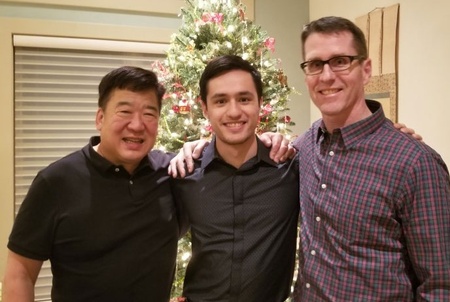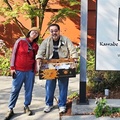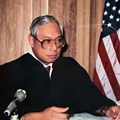Bill, the earlier period was obviously a hard time for you. Today you are married to your husband, Chris, and have a stepson, Colby. Can you talk about your current family and how you moved forward with your life?
This part is both “storybook” and “commonplace” at the same time. I did not go out socially for years after Lou’s death. When I was ready to start seeing people again, I was terrified. How do you put yourself “back on the market” when you are in your 50s?
The storybook part is that I met the perfect match in Chris. We are alike in many ways and different in more ways. He is the hardest working person I have ever met, so outgoing, and I think everyone in the community has met him. He is into very physically demanding sports and is a national champion in downhill mountain biking. But, best of all, he makes me laugh every day. The day we got married was the happiest day of my life.
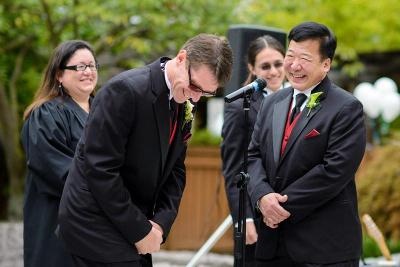
Chris’s son, Colby, was eight when I met Chris. Overnight, I became the proverbial “soccer mom,” going to all of Colby’s concerts and sports events, all his parent-teacher meetings, driving him and picking him up whenever he needed a ride, and baking for PTA sales. I am proud to have Colby as son and I remind myself always how I never thought I would have this experience. I love Chris and Colby, so it is like a storybook in how perfect for me everything turned out.
Yet, it is so “commonplace” because our lives are so ordinary and no different than those in any other family, gay, or straight.
What role did you play in passing same-sex marriage legislation in Washington State?
I represented Seattle JACL in the Washington State campaign for marriage equality in 2012. The State Legislature had passed same-sex marriage earlier, but conservatives mounted a campaign to put this issue to a vote. JACL has a history of supporting freedom to marry going back to 1967 when it spoke before the U.S. Supreme Court in the Loving vs. Virginia1 case that struck down anti-miscegenation laws.
In 1994, JACL became the first national non-LGBTQ organization to endorse same-sex marriage. Even earlier, thanks to visionaries like Kip Tokuda, Ray Ishii, Belle Nishioka, and Bob Shimabukuro, Seattle JACL had supported gay rights on every ballot issue since the early 1990s.
The Seattle chapter placed support ads in all the local papers, staffed telephone banks, and Kip, Dawn Rego, and I penned an op-ed piece for The Seattle Times.
I was asked to speak at the election victory celebration at the Westin Hotel and I equated the victory feeling to how the Issei must have felt when the California Alien Land Law was repealed (1952) or how the Nisei felt when Redress passed (1988). Now that I had the right to marry, I felt like a complete American citizen.
One sidenote is my claim to fame in a related venture. Macklemore was making his video on his song “Same Love” during the 2012 Washington Referendum 74 same-sex marriage campaign. My “niece,” Ciara Asamoto, and I went to the filming and were in both the wedding and the wedding reception scenes. This video has been seen by over 260 million people, so both of us like to brag about our “overnight success.”
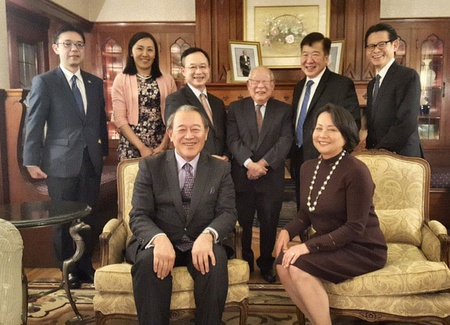
In your opinion, do you think Nikkei, because of the incarceration experience, see a parallel in discrimination against LGBTQ+ people?
While I acknowledge that this is an overly simplistic generalization and a subjective observation, I believe the Japanese American community is more socially progressive than other AAPI communities. It might be because, in general, the JA community has been here longer2, or maybe because we have the highest rate of mixed racial marriages among AAPI groups, or even because of the racially based injustices of World War II.
The intersections for LGTBQ+ discrimination and the JA incarceration experience are there, but sometimes people need to be reminded.
A positive example arose at the 2003 JACL National Convention in Las Vegas, when a resolution was being debated on whether to protest the Boy Scouts decision to exclude scouts who were gay.3 Seattle-chapter member Arlene Oki knew that I was gay and asked me to speak in favor of the resolution.
I started out by introducing myself as a longtime JACL member who was a scout from Cub Scouts to Boy Scouts to Explorer Scouts. I stated that I am gay. I recounted how scouting still afforded me wonderful experiences and lifelong friendships.
I reminded the delegates how hard the teenage years are and how we all wanted acceptance and to fit in. I said that we know how it feels to be judged, stereotyped, and name-called for something beyond our control. I said that kicking a teenager out from a group that he loves, for a reason beyond his control, sends the wrong message.
The resolution passed and I remember Arlene crying when I returned to my seat. She said she had just wanted me to speak to the resolution. She had not meant for me to “come out.” I laughed and told Arlene it really did not matter, and it saved me a lot of one-on-one conversations!
There are differences in levels of acceptance of the LGBTQ+ community.4 I know there remain a substantial number of JAs who do not accept the LGBTQ+ community. JAs who do not accept LGBTQ+ people may ground these actions in religion, political beliefs, or teachings that their parents may have passed on from prior generations.
Fortunately, society is changing. To me, there are two possible reasons. The first is that LGBTQ+ people are no longer invisible. Thanks to seismic shifts in media presentation and acceptance by government and corporate America, portrayals and contributions are positive.
Second, this exposure has helped the public realize that LGBTQ+ folks are not unknown people that people whisper about. LGTBQ+ are also JAs and of all races. We are sons, daughters, uncles, aunts, mothers and fathers, and friends. You know us. As the saying goes, “we are everywhere!”
The number of support groups like PFLAG (Parents, Family and Friends, of Lesbians and Gays) is amazing.
“Okaeri” is a support group for JA/API LGBTQ+ youth and their families and friends. It was founded by Marsha Aizumi, mother of a transgender son. Okaeri takes its name from the response to “Tadaima,” the Japanese greeting to announce that you have arrived home. The response is “Okaeri,” or “Welcome home.” It announces to all LGBTQ+ youth that they are welcomed home.
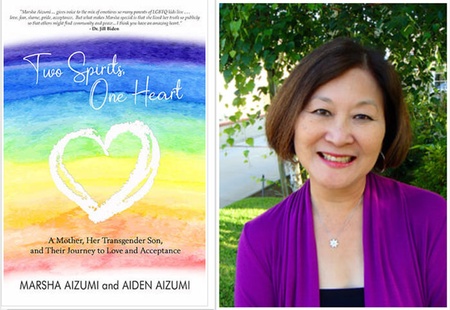
What messages would you have for families who have LGTBQ+ children or grandchildren, or for individuals who are LGTBQ+ but are not able to feel comfortable?
While many think that it’s easy now for people come out and to be gay, it is never easy for a young person to admit they are different.
Each person’s “coming out” story is different and their own. There is no single model. With me, I had to first do so with myself before I could do so with family, friends, and co-workers. I had years to think about it.
In coming out to others, initial reactions may not be final reactions. When I revealed myself to others, for some this was their first time thinking about me being gay. A common reaction is having someone say it doesn’t matter to them, but, then, on deeper reflection, it DOES matter. Others may be unaccepting at first, but later embrace you as the person they have always known. For anyone coming out, allow yourself time and give others time — it is a process.
For parents, it can be difficult to accept that the future their child wants may not be the future that they envisioned. In Marsha Aizumi’s book (box, p. 7), she focuses on the simple premise that LGBTQ+ youth are our children and every parent’s primal focus is to love and support their children.
I want everyone to realize that my story is no different than millions of other LGBTQ+ people. I tell my story because I want others to know that it is okay to be different.
But, most importantly, I want LGBTQ+ youth to know they are not alone. I don’t want anyone to go through the pain that I did.
It may not be easy, but we are here for you. You are not alone! You are loved! There are people and groups who care! Things get better!
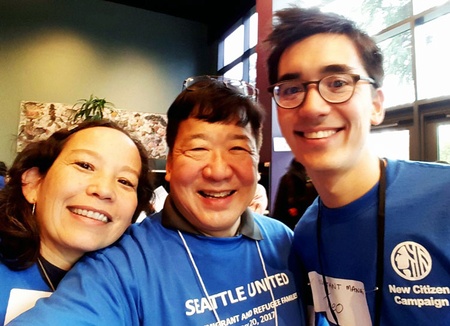
Editor's notes:
1. Loving vs. Virginia. Richard and Mildred Loving, a white man and Black woman whose marriage was deemed illegal according to Virginia state law.
2. While Chinese have been in the U.S. longer than JAs, many Chinese-American families began about the same time as JA ones, owing to renewed Chinese immigration after the 1906 San Francisco earthquake (“Cantonese Chinese Americans” in the North American Post in Dec. 2018).
3. The Boy Scouts allowed gay scouts to participate fully in 2014 and gay scout leaders in 2015.
4. Gay marriage is not yet recognized in Japan.
*This article was originally published in the North American Post on June 13, 2021.
© 2021 Elaine Ikoma Ko / The North American Post


